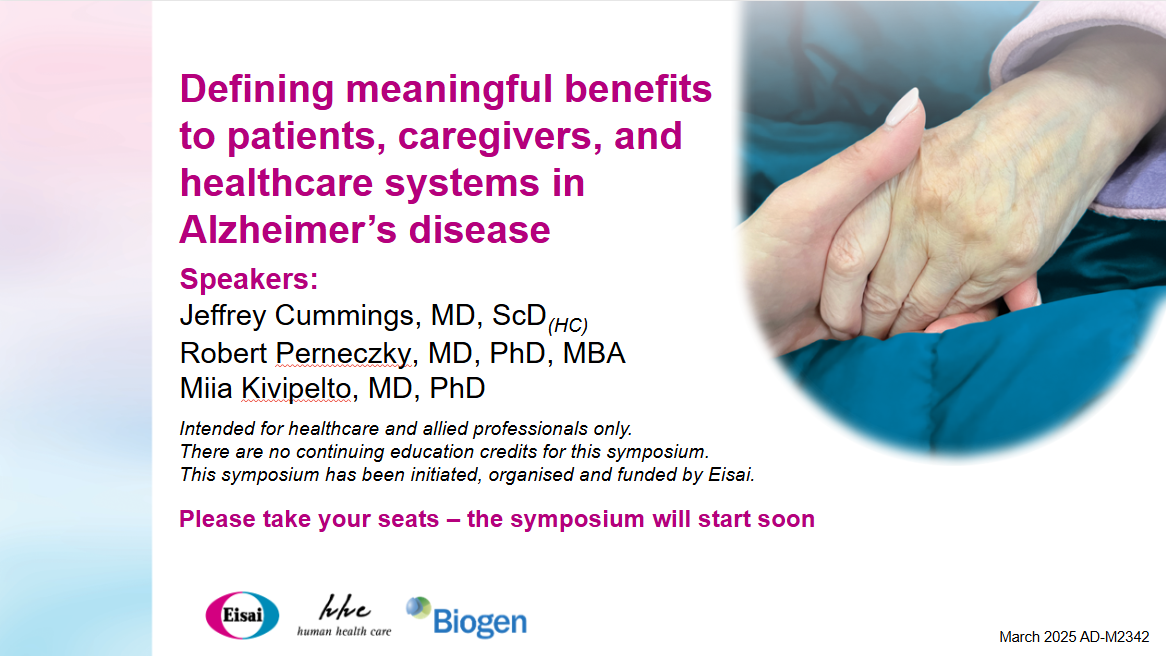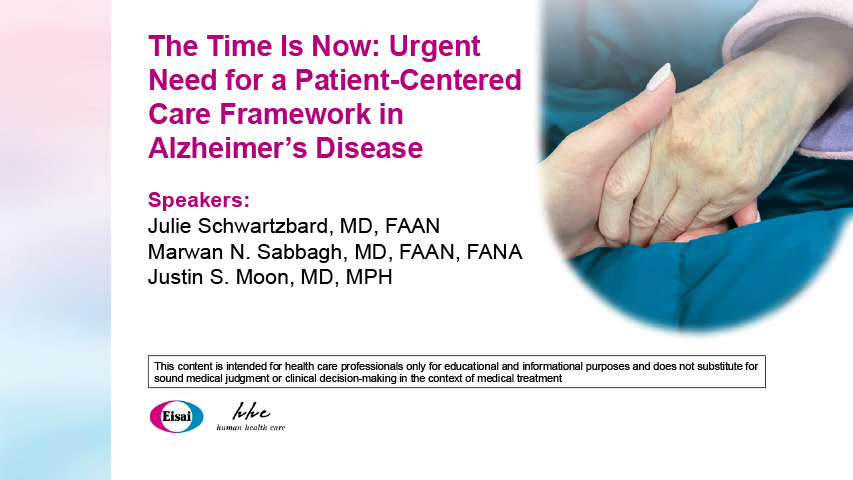
Learn more about the progression of AD
When it comes to understanding the science of memory, no detail is too small. To learn more, watch our LinkedIn Live stream on the real-world implications of study design methods and data evaluation in Alzheimer’s disease clinical research.

Unlocking Alzheimer’s: Understanding the Science
Experts Dung Trinh, MD, and Darren Gitelman, MD, joined Eisai’s Susan De Santi, PhD, for a LinkedIn Live event where they discussed numerous aspects of Alzheimer’s disease (AD), including mechanism of disease, blood-based biomarkers, the role of protofibrils in AD progression and evaluating clinical data in AD.

Learn About The Underlying Mechanism Of Alzheimer’s Disease
Research has shown that protofibrils play a key role in the neurodegenerative process of Alzheimer’s disease (AD) pathophysiology. Expert neurologists Dennis Selkoe, MD, and Arif Dalvi, MD, joined Eisai’s Michael Irizarry, MD, MPH, to discuss where protofibrils fit in the amyloid-beta pathway and how their neurotoxic effects contribute to AD progression.

Assessing Meaningful Benefits in Early Alzheimer's Disease (AD)
Click on the video on the right to hear expert discussions on assessing meaningful benefits in early AD using a holistic approach that incorporates multiple stakeholder perspectives: view full series here


Patient-Centered Care Framework in Alzheimer's Disease (AD)
Click on the video on the right to hear experts from around the world discuss the urgent need for a patient-centered framework in AD to ensure a timely diagnosis and appropriate patient identification. The time is now: view full series here

Research has shown that protofibrils play a key role in the neurodegenerative process of Alzheimer’s disease (AD) pathophysiology. Expert neurologists Dennis Selkoe, MD, and Arif Dalvi, MD, joined Eisai’s Michael Irizarry, MD, MPH, to discuss where protofibrils fit in the amyloid-beta pathway and how their neurotoxic effects contribute to AD progression.